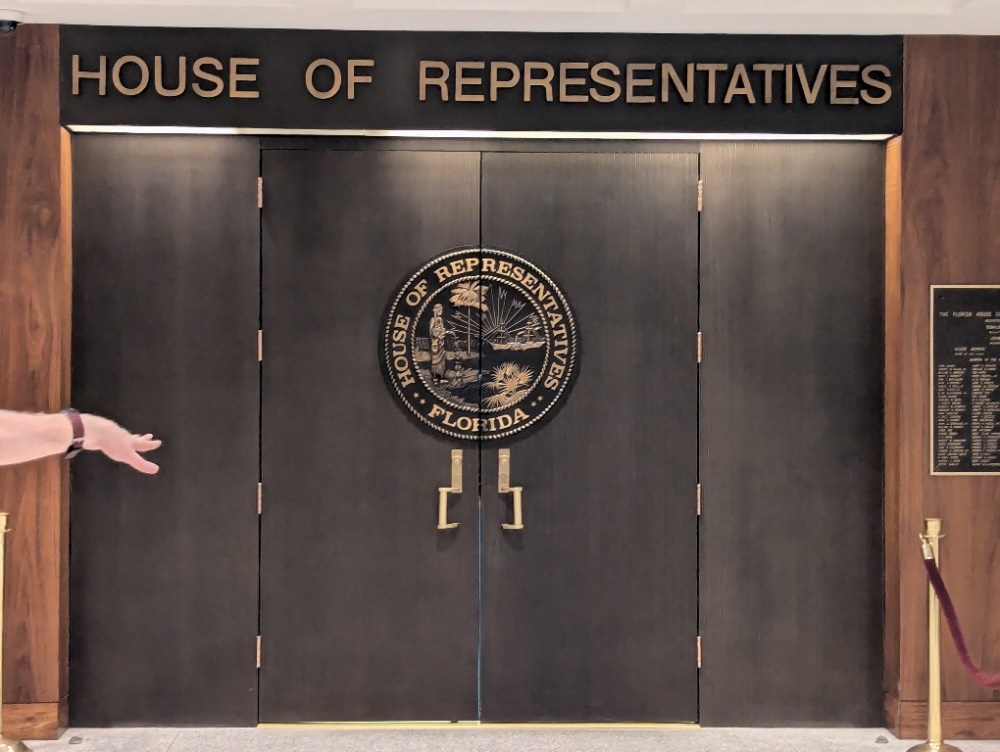
Governor Ron DeSantis and the Republican Party of Florida are using a Michigan lawsuit to argue against Amendment 4, a proposed measure that aims to expand abortion access in the Sunshine State.
Set for a November vote, the amendment seeks to legalize abortion prior to fetal viability and in circumstances where the patient’s health is at risk.
The DeSantis administration claims the amendment could lead to taxpayer-funded abortions, a controversial assertion that opponents label as a “distraction.”
Lauren Brenzel, campaign director for Floridians Protecting Freedom, the group backing Amendment 4, criticized this stance, saying, “Our initiative is about ending Florida’s extreme abortion ban. Whatever’s happening in Michigan has nothing to do with Florida.”
Currently, Florida enforces a six-week abortion limit under the Heartbeat Protection Act, signed into law by DeSantis earlier this year. Amendment 4 would reverse this ban, allowing women broader access to abortion services.
The Michigan lawsuit, filed by the American Civil Liberties Union, challenges a law that prohibits the use of public funds for abortion services, arguing it violates a 2022 amendment that established abortion rights. This legal battle highlights the ongoing debate about public funding for abortions, particularly affecting low-income residents reliant on Medicaid.
As part of their campaign against Amendment 4, the Republican Party of Florida has released advertisements claiming similar legal challenges could emerge in Florida. DeSantis referred to Amendment 4 as a “Trojan horse,” asserting that its passage could force taxpayers to fund abortions.
Critics, including the group Vote No on 4, emphasize the potential financial implications of the amendment, citing the Michigan case as a warning. A financial impact statement accompanying the ballot will note “uncertainty about whether the amendment will require the state to subsidize abortions with public funds,” along with potential litigation costs.
Taryn Fenske, a spokesperson for DeSantis, described the amendment as “broad and misleading,” suggesting it lacks necessary definitions and could lead to legal challenges. Proponents counter that existing Florida laws define viability as the stage of fetal development when a fetus can survive outside the womb.
Legal experts indicate that if Amendment 4 passes, interpretation of its provisions would likely fall to the Florida Legislature and Supreme Court, known for its conservative stance. “The Florida Supreme Court is unlikely to interpret Amendment 4 to mandate taxpayer funding of abortion,” said Mary Ziegler, a law professor.
The debate over public funding for abortion has historical roots, tracing back to the 1977 Hyde Amendment, which restricts federal Medicaid funding for abortions. States, however, can allocate additional funds, and at least 17 do so, according to the ACLU.
YWCA Kalamazoo, a non-profit in Michigan, is a plaintiff in the ACLU lawsuit, which seeks clarity on the use of public funds for reproductive health services. Although representatives for YWCA Kalamazoo and the ACLU of Michigan declined to comment, their case resonates with Florida’s Amendment 4 discussion.
With the November election approaching, the conversation surrounding Amendment 4 and its potential ramifications is intensifying. Both sides are gearing up for a contentious battle over reproductive rights in Florida, highlighting the ongoing complexities of abortion access in the state.